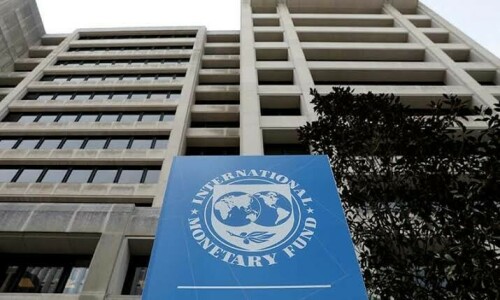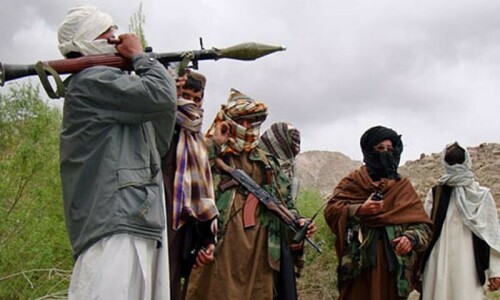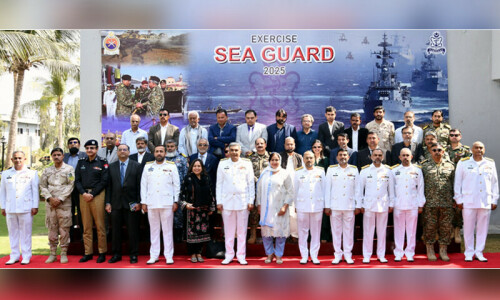WASHINGTON, Nov 3: The Bush administration has informed the US Senate that by concluding a nuclear deal with India, Washington wants to engage New Delhi on this issue rather than isolate it.
It would be far easier to monitor New Delhi’s atomic energy activities within the fold of the international regime than outside of it, Under Secretary of State for Political Affairs Nicholas Burns told the Senate Foreign Relations Committee on Wednesday.
He said the Bush administration was seeking Congressional approval for the deal because New Delhi had begun to meet its commitments under the accord.
With Pakistan also seeking similar co-operation, Mr Burns ruled out extending the offer to any other country. The administration believed that it was better to ‘wait’ before it asked the Congress to consider any required legislative action “until India is further along in taking necessary steps to fulfil our agreement,” Mr Burns said.
“We weighed the pros and cons of whether or not to seek changes to the US policy and ask the Congress for authorization,” Mr Burns, who was in New Delhi last week to discuss the proposed nuclear deal with Indian leaders, told the Senate committee.
Mr Burns said “the actions India committed to undertake are difficult, complex and time-consuming,” but he assured the lawmakers that New Delhi could be relied upon in the future with sensitive nuclear technology.
Explaining the rationale for the July 18 agreement reached between Indian Prime Minister Manmohan Singh and US President George W. Bush, Mr Burns said: “To consign it (India) to a place outside that system did not appear to be strategically wise, and has not proven effective.”
He said the agreement underscores “democratic India’s arrival as a force in the world,” and added, “the time is right” for such an accord.
“It is time to shift our US-India relationship to anew strategic partnership for the decades ahead,” he said. “While not formally a part of the NPT regime, India has demonstrated a strong commitment to protect fissile materials and nuclear technology...India has resisted proposal for nuclear cooperation with nuclear aspirants that could have had adverse implications for international security,” Mr Burns told the Senate committee.
He said the Bush administration had told the Senate Foreign Relations Committee that as India ‘begins’ to meet its commitments under the terms of the civilian nuclear agreement, the administration would propose ‘appropriate language’ that would be “India-specific and would demonstrate our dedication to a robust and permanent relationship”.
“The actions India committed to undertake are difficult, complex and time-consuming,” Mr Burns told members of the Senate panel making the point that the administration believed that it was better to ‘wait’ before it asked the Congress to consider any required legislative action “until India is further along in taking the necessary steps to fulfil our agreement”.
The senior administration official said New Delhi might not be ready, say, until February, March or April of 2006. “Our judgement is that it will not be wise or fair to ask the Congress to make such a consequential decision without evidence that the Indian government is acting on what is arguably the most important of its commitments — the separation of its civilian and military facilities,” Mr Burns told the lawmakers.
Mr Burns also talked of environmental and energy benefits, not to forget commercial advantages of the proposed agreement.
















































